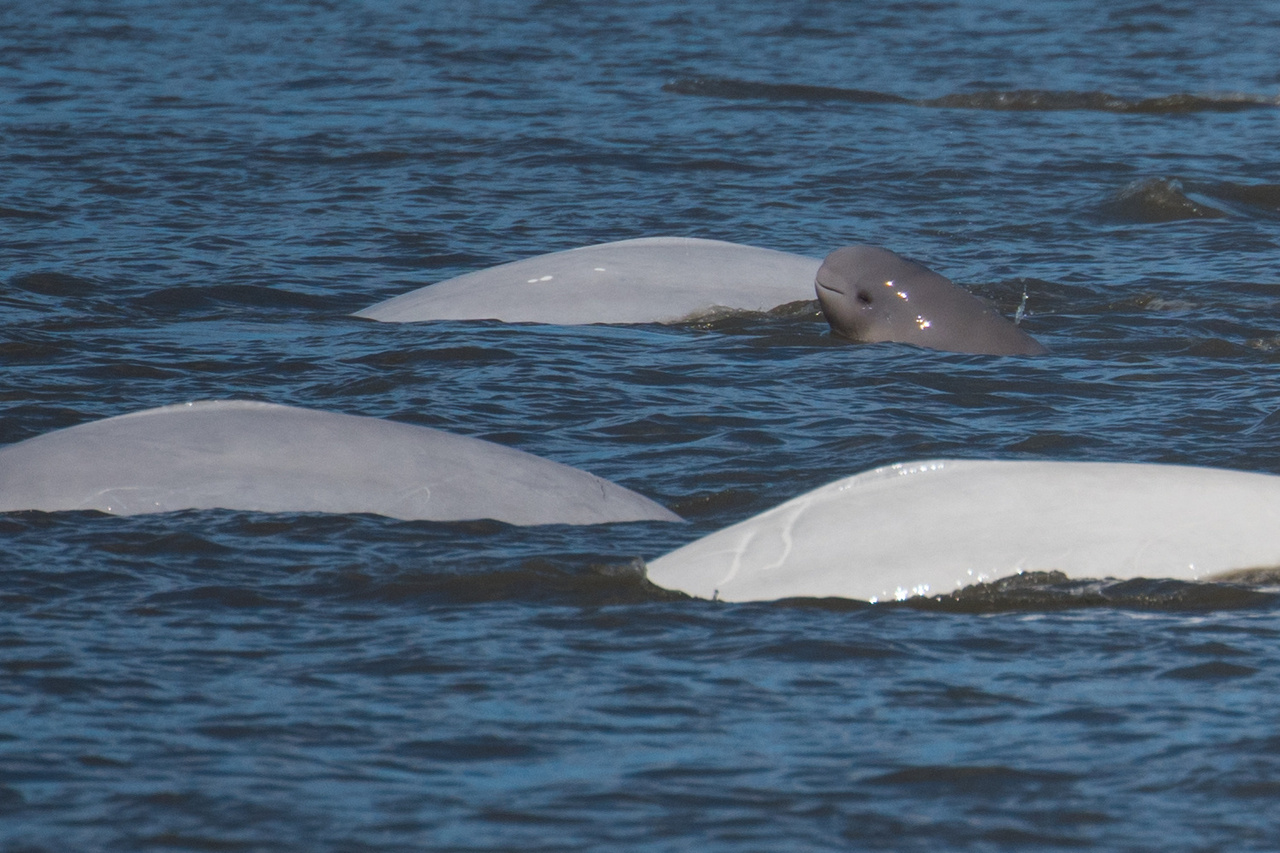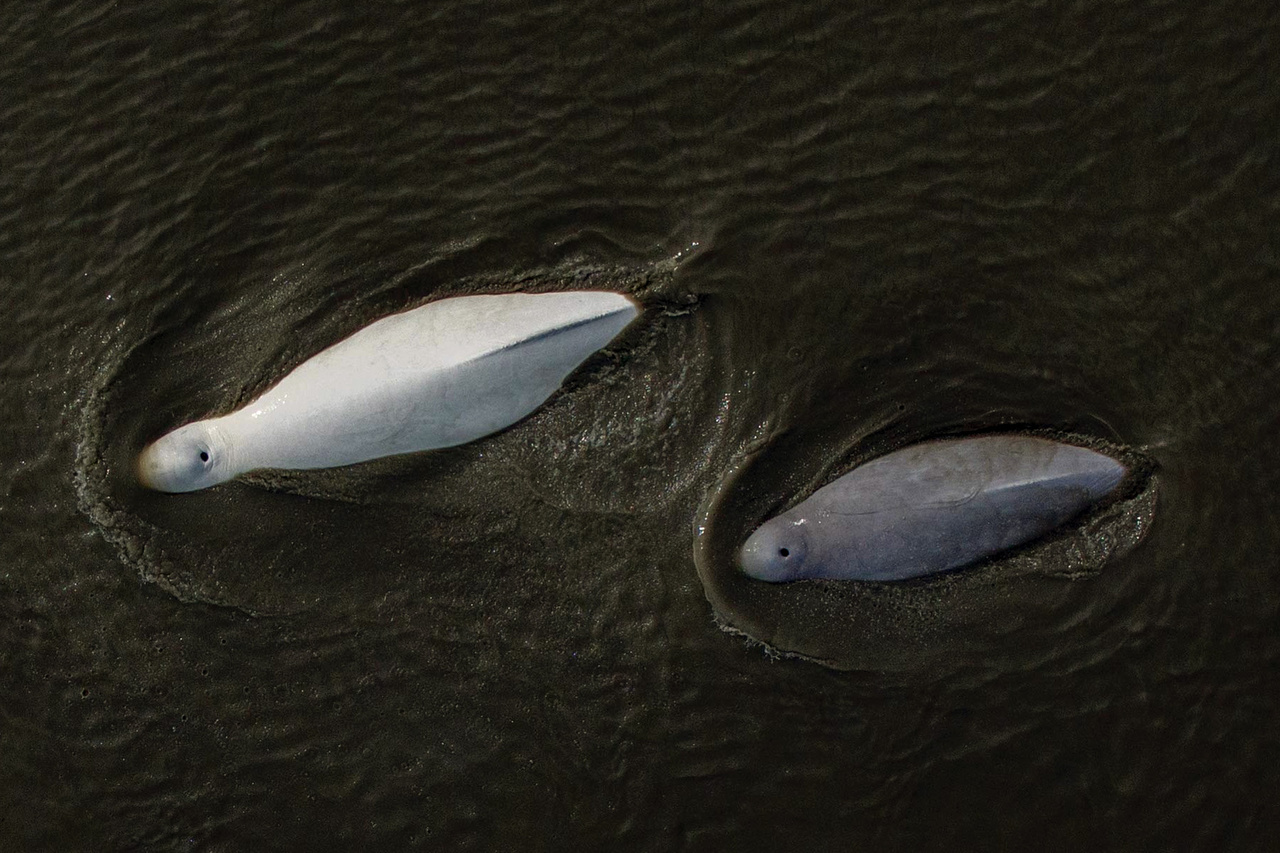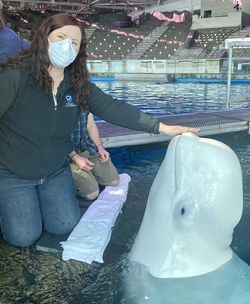Cook Inlet Beluga Whale Portal

Location of Data
The Need
The Cook Inlet beluga whale was listed as endangered under the Endangered Species Act (ESA) in 2008. The most recent abundance estimate from 2018 is 269 animals, down from the 2016 estimate of 328 animals. The underlying growth rate of this population remains low and there are concerns about whether this population will be able to recover. Threats to the population include natural disasters, oil spills, noise, and cumulative effects of multiple stressors.
The intention of the portal is to improve access to critical scientific information aiding ecosystem-based management and recovery of the endangered Cook Inlet beluga whale and habitat and to act as a mechanism for increasing public, private sector, government and tribal knowledge about environmental data related to Cook Inlet beluga whales. Disseminating this information and integrating it with other relevant data supports the implementation of the Cook Inlet Beluga Whale Recovery Plan.
Project Location
Cook Inlet, located in southcentral Alaska, stretches 180 miles from it’s entrance in the Gulf of Alaska to the northern waters near Anchorage, where the inlet branches into Knik Arm and Turnagain Arm. The majority of the Alaskan population lives along the shores of Cook Inlet, mostly in Anchorage and coastal communities on the Kenai Peninsula. Cook Inlet is also home to marine mammals, fish, seabirds. Human activities in Cook Inlet include fishing (commercial, recreational and subsistence), tourism, and oil and gas production.
Project Details

The Cook Inlet Beluga Whale Ecosystem Portal combines the National Marine Fisheries Service Alaska Region Cook Inlet beluga whale scientific sightings mapper with biological, physical and socio-economic data layers into a data integration and visualization tool on the Alaska Ocean Observing System’s platform. The additional data layers include oceanographic and environmental measurements from real-time sensors; regional oceanographic and climate models; bathymetry and habitat information; data on beluga whale prey in Cook Inlet; local and traditional knowledge; other project-level GIS data; and the locations of current and planned major development activities.
This portal was made possible with funding from the National Fish and Wildlife Foundation (NFWF), NOAA National Marine Fisheries Service (NMFS), and the Cook Inlet Regional Citizens Advisory Council (CIRCAC).
Project Highlights
With oversight from a steering committee composed of federal and state resource managers, researchers, and private industry the Cook Inlet Beluga Whale Ecosystem Portal was designed to help meet the conservation, management and recovery goals for the endangered Cook Inlet beluga whale by consolidating available biological and physical information that may play a role in the recovery of Cook Inlet beluga whales.
The following are excerpts from user feedback collected at the conclusion of the portal development:
“A tool like the CIBW Ecosystem Portal, that specifically improves access to information related to the endangered Cook Inlet beluga whales will aid in targeting and filling data gaps and will aid in future research and policy decisions.”
-CIRCAC Executive Director Michael Munger
“Having all the pertinent data for managers, the public, local and regional governments, and industry in one accessible location would be of great use to all of us in our future planning and decision-making.”
– Port of Anchorage Director Stephen Ribuffo
Project Highlights
The following news articles and radio broadcasts featured the public released of the CIBW Ecosystem Portal:
- Alaska Journal of Commerce, May 2016: AOOS launches portal for Cook Inlet beluga whale data
- Juneau Empire, May 6, 2016: Cook Inlet beluga whale ecosystem portal created
- Alaska Public Radio, featured on KBBI and KTOO Public Media; Alaska SunTimes Network: Observation group launches info hub on Cook Inlet beluga whales (both interview by radio and written story featured)
- CIRCAC Webnews, May 5, 2016
- IOOS Webnews, May 4, 2016
- NOAA Fish Media, May 10, 2016
Principal Investigators

Marine Mammal Specialist
Cook Inlet Beluga Recovery Coordinator
NOAA Fisheries | U.S. Department of Commerce

Axiom Data Science
